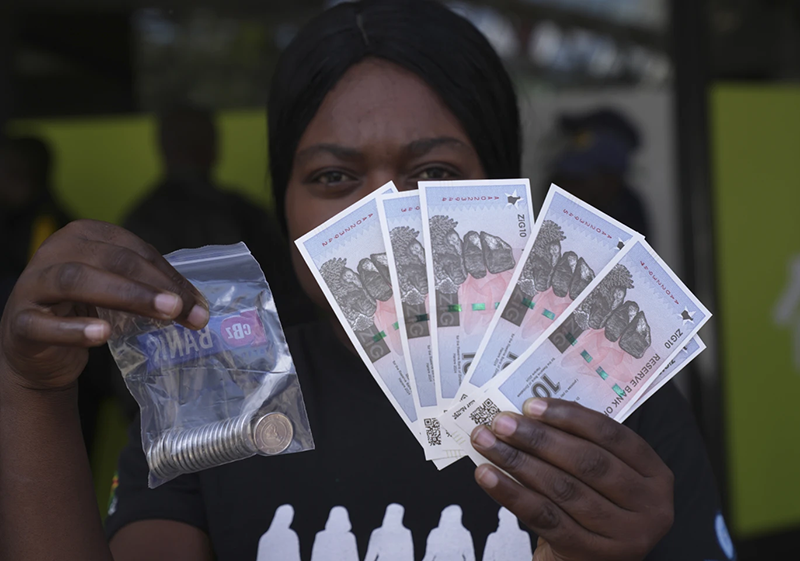- Economy
- No Comment
Zimbabwe’s biggest retailer calls for free-float of the ZiG currency

By Moneyweb
OK Zimbabwe, the southern African nation’s biggest supermarket chain, called on the authorities to free-float the exchange rate to help revive the embattled formal retail sector.
The industry is facing severe strain because of measures introduced by the government to support the ZiG, short for Zimbabwe Gold, its sixth attempt since 2009 at creating a unit that can replace the dollar in local transactions.
The steps have included devaluing the ZiG by 43% in September to close the gap with the street-market rate, curtailing money supply and forcing companies to price their products in the local currency — all of which advantaged the informal sector, which sells goods at the higher unofficial exchange rate.
“The fortunes of the country’s formal retail sector are hinged on the stability of our exchange-rate regime,” OK Zimbabwe said Monday in a quarterly trading update. “There is need for absolute clarity on the roadmap toward a full market-determined exchange-rate system,” and liberalization would go a long way toward restoring the formal retail sector’s competitiveness,” it said.
The measures taken by authorities have increased operating costs as power outages worsened, nearly doubled existing US-dollar- denominated obligations in loans and creditors’ balances, and led to low stocking levels, the retailer added.
In response, OK Zimbabwe said it had shut four stores in the capital, Harare and is reviewing the future of other branches. It has also held talks with the National Treasury and central bank officials, which yielded “a relaxation” of the strict rule requiring formal retailers to use the official exchange rate in pricing their goods, the company said.
IH Securities has recommended that investors reduce their exposure to formal retail stocks as currency issues and pricing dynamics depress performance and warned that tight liquidity is likely to hit other sectors.
“The dollarised environment continues to apply pressure to margins as costs begin to right-size, particularly human capital costs and utilities, amidst higher imported supply-side costs,” the Harare-based brokerage wrote in a client note this month.
Listed companies including Truworths Zimbabwe and Khayah Cement — formerly Lafarge Cement Zimbabwe — are in corporate rescue, while CBZ Holdings, First Capital Bank, Zimasco and the local units of South Africa’s Impala Platinum Holdings and Tongaat Hulett have cut jobs.
“We are likely to see the tax base remain under pressure with these ongoing developments,” IH Securities said.
